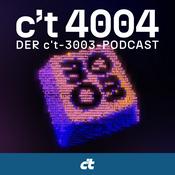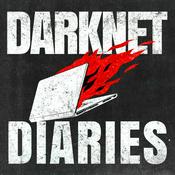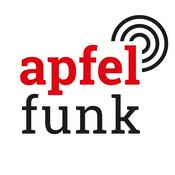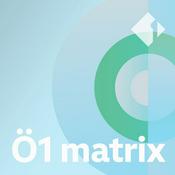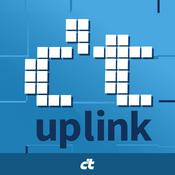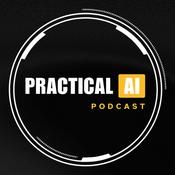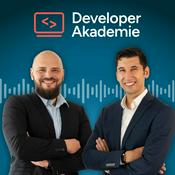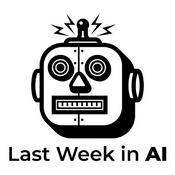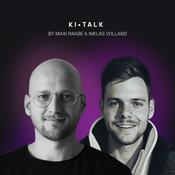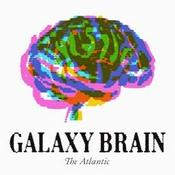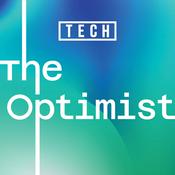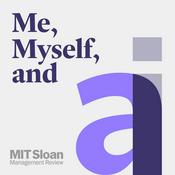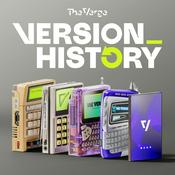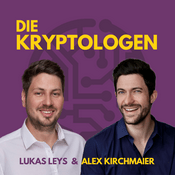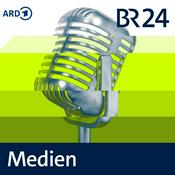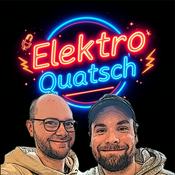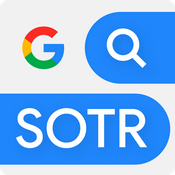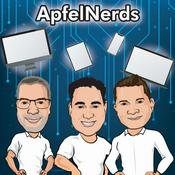260 Episoden
- Is your platform engineering initiative struggling to deliver results? The problem might not be your tools or technology at all.
In this episode, Sam Barlien, Community Organizer at Platform Engineering (the world’s largest platform engineering community), shares insights from speaking with nearly 400 engineering leaders last year about why their platform initiatives succeed or fail. The biggest revelation: it’s almost never about the tools. Sam explains why treating your internal platform like a product, complete with user research, documentation, and a product manager mindset, is the key differentiator between real platform engineering and just a rebranded operations team. He breaks down how to start small with a minimum viable platform, measure what actually matters, and build golden paths that developers want to follow. The conversation also covers how AI is both accelerating the need for platform engineering and transforming how platforms are built and operated.
Key Topics Discussed:
What platform engineering really means (hint: it’s product management)
Why DevOps and SRE often fail without product thinking
The “Golden Path” vs “Golden Cage” approach to developer experience
How to measure ROI and pitch platform engineering to executives
The symbiotic relationship between AI and platform engineering
Why starting with a Minimum Viable Platform beats big-bang transformations
PlatformCon 2025 key takeaways and emerging trends
Timestamps:
(00:00:00) Trailer & Intro
(00:03:16) What Background Do You Need for Platform Engineering?
(00:06:32) How Does Storytelling Help in Platform Engineering?
(00:08:53) What Is Platform Engineering?
(00:12:27) Why Are Organizations Adopting Platform Engineering?
(00:19:51) What’s the Difference Between DevOps, SRE, and Platform Engineering?
(00:23:25) Why Is the “Plug and Play” Approach to Tools a Trap?
(00:28:45) How Do You Pitch Platform as a Product Instead of a Project?
(00:34:01) How Do You Measure the ROI of Platform Engineering?
(00:40:42) What Is the Golden Path in Platform Engineering?
(00:47:12) What Were the Key Takeaways from PlatformCon 2025?
(00:53:41) How Does Platform Engineering Leverage AI?
(00:58:41) What Are the Hidden Costs of AI-Generated Code?
(01:04:01) Why Is Platform Engineering Actually Product Management?
(01:07:12) 1 Tech Lead Wisdom
_____
Sam Barlien’s Bio
Sam Barlien is a community organiser for the Platform Engineering Community. He is a tech nerd, and has been involved in tech communities for more than 10 years. He helps manage Platform Weekly, co-hosts PlatformCon, and drives the community Ambassador program, blog and Youtube channel.
Follow Sam:
LinkedIn – linkedin.com/in/sam-barlien-3b2579184
Platform Engineering – platformengineering.org
Like this episode?
Show notes & transcript: techleadjournal.dev/episodes/247.
Follow @techleadjournal on LinkedIn, Twitter, and Instagram.
Buy me a coffee or become a patron. - (05:13) Brought to you by Sweep AI
Sweep is the fastest coding assistant for JetBrains. It lets you write code 10x faster. Finally, AI that works in JetBrains. Download for free at sweep.dev.
What if Southeast Asia had its own ChatGPT that cost 20x less? Bruce Yang built Agnes AI to solve what global companies ignore: accessible AI for emerging markets.
In this episode, Bruce Yang, CEO and founder of Agnes AI, explains how he’s built Southeast Asia’s fastest-growing AI platform with 4 million registered users and 300K daily active users. After working at Microsoft and LinkedIn in Silicon Valley, Bruce returned to Singapore and started his PhD at NUS right before COVID, positioning him perfectly to ride the AI wave. Agnes AI uses smaller, specialized models trained on Southeast Asian languages and local user data to deliver productivity features like deep research, PowerPoint generation, and AI-powered group chats at 1/20th the cost of major competitors. We discuss the challenges of building AI for emerging markets, the importance of keeping humans in the loop for critical thinking, and why Bruce believes the future of AI belongs to applications, not just models.
Key topics discussed:
Making AI 20x cheaper than ChatGPT
Why Southeast Asia needs its own AI models
Using multi-agent systems to reduce hallucinations
AI group chats and social features
Critical thinking in an AI-assisted world
Why Agnes avoids the AI coding space
AI bubble debate: hype vs. real value
Getting emerging markets to adopt AI
Subscription vs. pay-per-use business models
Timestamps:
(00:00:00) Trailer & Intro
(00:02:49) Why Did Bruce Start a PhD During COVID to Build an AI Company?
(00:06:16) Why Build Another AI Model When Thousands Already Exist?
(00:09:48) How Is Agnes AI Cheaper and Faster Than ChatGPT?
(00:14:00) Does Agnes AI Support Southeast Asian Languages and Cultures?
(00:15:34) How Does Agnes AI Handle Local Languages Better Than Global Models?
(00:17:57) How Does Agnes AI Reduce Hallucinations?
(00:20:03) What Can Agnes AI Do That ChatGPT Cannot?
(00:25:31) Why Is AI in Group Chats the Next Big Thing?
(00:29:18) How Does Agnes AI Keep Your Private Group Conversations Secure?
(00:31:41) Will AI Make Us Lose Our Critical Thinking Skills?
(00:37:43) Should Children Use AI for Schoolwork?
(00:40:27) Can Agnes AI Help With Coding Like Cursor?
(00:43:07) Will Everyone Host Their Own AI Model in the Future?
(00:47:39) Is AI a Bubble or Real Economic Transformation?
(00:51:01) How Can Southeast Asians Start Using AI Today?
(00:53:56) What Are Real-World Examples of People Using Agnes AI?
(00:57:30) How Does Agnes AI Make Money While Offering Free Features?
(01:01:19) 3 Tech Lead Wisdom
_____
Bruce Yang’s Bio
Bruce Yang is the founder and CEO of Agnes AI, a consumer AI platform making intelligence more collaborative, creative, and accessible. A Raffles Institution graduate, he studied Math and Computer Science at UC Berkeley, earned a Master’s from HEC Paris, and is pursuing a PhD at NUS. He previously worked at Microsoft and LinkedIn in Silicon Valley.
Agnes AI redefines how people interact with AI through group chats, AI-assisted games, real-time content creation, slides generation, and research tools. Bruce envisions AI as a shared experience that amplifies human creativity and collaboration, enhancing rather than replacing human thinking and imagination.
Follow Bruce:
LinkedIn – linkedin.com/in/tongbruceyang
Agnes AI - https://agnes-ai.com/
Email – [email protected]
Like this episode?
Show notes & transcript: techleadjournal.dev/episodes/246.
Follow @techleadjournal on LinkedIn, Twitter, and Instagram.
Buy me a coffee or become a patron. - (05:22) Brought to you by Cyberhaven
AI is exfiltrating your data in fragments. Not one big breach — a prompt here, a screenshot there, a quiet export into a shadow AI tool. Every week, AI makes your team faster and your data harder to see. Files are moved to new SaaS apps, models are trained on sensitive inputs, and legacy DLP is blind to the context that matters most.
On February 3rd at 11 am Pacific, Cyberhaven is unveiling a unified DSPM and DLP platform, built on the original data lineage, so security teams get X-ray vision into how data actually moves — and can stop risky usage in real time.
Watch the launch live at cyberhaven.com/techleadjournal.
Did you know Singapore is one of the world’s top countries launching cyberattacks? Not as a victim, but as the source. Your routers, smart TVs, robot vacuums, or network-attached storage could be part of a massive botnet right now.
In this eye-opening episode, Joseph Yap, founder of Otonata and cybersecurity expert, reveals the hidden cyber threat lurking in our homes. He reveals how everyday devices from routers to smart TVs become attack weapons. He explains why Singapore’s excellent infrastructure ironically makes it attractive for hackers and shares practical steps to protect your network. From residential proxies renting out your internet connection to teenagers running ransomware gangs, this conversation exposes the gap between our connected lives and our digital security practices.
Key topics discussed:
Why Singapore, Indonesia, and Vietnam are top cyberattack source countries
Why Singapore’s infrastructure makes it attractive for hackers
How 700,000+ compromised devices launch 30 terabits per second DDoS attacks
The rise of residential proxies and dark web rental of home networks
How hackers exploit publicly disclosed vulnerabilities in outdated firmware
Why AI is lowering the barrier to entry for hackers
What makes executives and high-net-worth individuals attractive targets
Practical steps to audit and protect your home network
Timestamps:
(00:00:00) Trailer & Intro
(00:02:40) How Can I Apply Journalism Skills to Tech
(00:06:14) Why is Curiosity Essential for Tech Leaders?
(00:08:48) Why is Singapore a Top Source for Cyber Attacks?
(00:12:11) What Makes Singapore Attractive for Cyber Attacks?
(00:16:39) How Many Devices in Singapore are Already Compromised?
(00:20:40) How Can I Tell if My Home Network is Compromised?
(00:30:13) Which Devices are Hackers’ Favorite Entry Points?
(00:33:18) What is a Residential Proxy and Why Should I Care?
(00:36:27) How do Hackers Actually Break into My Network?
(00:47:47) Why are Executives and High-Net-Worth Individuals Prime Target?
(00:55:12) Why isn’t Singapore’s Cyber Attack Problem in the News?
(00:59:26) Can Internet Providers Stop These Attacks?
(01:02:16) What Can I Do to Protect My Home Network?
(01:05:19) How Do I Protect My Network-Attached Storage (NAS)?
(01:10:41) How is AI Changing the Cyber Attack Landscape?
(01:17:35) How Can Otonata Help Protect My Home Network?
(01:23:39) What are Real-World Examples of Home Network Compromises?
(01:28:20) 3 Tech Lead Wisdom
_____
Joseph Yap’s Bio
With 20+ years in Operations and Supply Chain, Joseph Yap founded Otonata (https://otonata.com) after realizing how vulnerable home networks are to security breaches. Otonata brings corporate-grade cybersecurity to homes using digital hygiene and lean management principles, protecting dozens of households from growing threats posed by AI, smart devices, and expanding attack surfaces.
Follow Joseph:
LinkedIn – linkedin.com/in/-joseph-yap
Otonata – https://otonata.com/
Free Hack Check – https://otonata.com/hack-check
Like this episode?
Show notes & transcript: techleadjournal.dev/episodes/245.
Follow @techleadjournal on LinkedIn, Twitter, and Instagram.
Buy me a coffee or become a patron. - (06:23) Brought to you by Sweep AI
Sweep is the fastest coding assistant for JetBrains. It lets you write code 10x faster. Finally, AI that works in JetBrains. Download for free at sweep.dev.
Is the era of writing code by hand coming to an end? Gene Kim explains how vibe coding solved problems he abandoned for 13 years and why the best days of coding might be ahead of us.
In this episode, Gene Kim shares his transformation from someone who hadn’t written production code in decades to building ambitious projects in minutes. He explains how meeting Steve Yegge and discovering vibe coding reignited his passion for programming.
Gene breaks down the FAAFO framework (Fast, Ambitious, Autonomous, Fun, Optionality) of vibe coding benefits and addresses the real risks of vibe coding, from deleted databases to corrupted repos. He emphasizes that developers need to shift from line cook to head chef, mastering delegation, architecture, and faster feedback loops. The conversation also explores whether AI will eliminate or expand developer roles, what skills matter most when hiring, and how organizations can build a vibe coding culture.
Key topics discussed:
Gene’s jaw-dropping a-ha moment solving his 13-year problem
The FAAFO framework for measuring vibe coding benefits
From line cook to head chef: the new developer skillset
Real risks and downsides of vibe coding
Will we need fewer developers or 10x more software?
Why feedback loops must be 100x faster than before
Building vibe coding culture across enterprise teams
Timestamps:
(00:00) Trailer & Intro
(03:13) What shaped Gene Kim’s career in DevOps and technology?
(07:26) How did Gene Kim’s books like Phoenix Project come about?
(09:55) What’s the story behind the Phoenix Project graphic novel?
(12:21) What was Gene Kim’s a-ha moment with vibe coding?
(14:41) How did Steve Yegge and Gene Kim collaborate on the book?
(21:06) What is vibe coding and how is it different from regular coding?
(25:57) What is the FAAFO framework for vibe coding benefits?
(32:08) Will AI replace software developers?
(36:10) What are the risks and downsides of vibe coding?
(41:51) What skills do developers need in the age of vibe coding?
(46:56) Why are feedback loops critical when using AI for coding?
(51:59) How can organizations adopt vibe coding as a culture?
(57:37) What should you look for when hiring developers in the AI era?
(59:45) 2 Tech Lead Wisdom
_____
Gene Kim’s Bio
Gene Kim is a WSJ bestselling author and researcher who has studied high-performing technology organizations since 1999. The founder and former CTO of Tripwire, he has authored several industry-defining books, including The Phoenix Project and The DevOps Handbook, with over 1 million copies sold. He also organizes the Enterprise Technology Leadership Summit.
Follow Gene:
LinkedIn – linkedin.com/in/realgenekim
Twitter – @RealGeneKim
IT Revolution – itrevolution.com
Vibe Coding - https://itrevolution.com/product/vibe-coding-book/
Like this episode?
Show notes & transcript: techleadjournal.dev/episodes/244.
Follow @techleadjournal on LinkedIn, Twitter, and Instagram.
Buy me a coffee or become a patron. CTO Coach: Why Tech Companies are Really Laying Off Developers (It’s Not Just AI)
12.1.2026 | 1 Std. 2 Min.Why are tech companies really laying off developers? The uncomfortable truth has nothing to do with AI efficiency and everything to do with running out of ideas.
In this episode, Stephan Schmidt, CTO coach and author of “The Amazing CTO’s Missing Manual,” shares a perspective on AI adoption that most tech leaders aren’t talking about. Developer layoffs aren’t about AI replacing jobs; they reveal a deeper problem. Product management has become a bottleneck, creating shallow features just to keep developers busy rather than driving meaningful innovation. When AI accelerates development, this bottleneck becomes impossible to ignore.
Stephan explains why architecture must be AI-ready before teams can benefit from AI tools, how CTOs can manage unrealistic business expectations, and why junior developers actually have a massive opportunity right now. He also challenges the common belief that vibe coding will democratize software development, explaining why you need to be a strong developer to prompt effectively.
Key topics discussed:
Why AI layoffs reveal companies ran out of good ideas
Architecture must be AI-ready for real productivity gains
Vibe coding only works if you’re already a strong developer
Product engineering roles will replace traditional developers
MCP connections unlock AI value beyond code generation
Juniors have huge advantage as AI-native engineers
Iterate on plans, not prompts, when using AI tools
CTOs can finally “rise and shine” using AI strategically
Timestamps:
(00:00) Trailer & Intro
(03:19) How do companies become truly AI-first?
(04:13) How should CTOs manage unrealistic AI velocity expectations?
(08:35) AI Use Cases Beyond Code Generation
(12:04) What is MCP and how does it unlock AI value?
(15:04) Why Developers Resist AI Adoption
(18:35) Are AI layoffs caused by a lack of product innovation?
(21:22) What is the future for junior developers in the age of AI?
(24:36) Critical Thinking and Moving Up the Abstraction Layer
(27:24) Vibe Coding: Benefits and Pitfalls
(31:59) What is the difference between a Developer and a Product Engineer?
(35:59) Building an Effective AI Adoption Strategy
(38:06) AI Adoption Strategy for Development Teams
(40:44) Avoiding the AI Tech Zoo
(44:48) How do tech leaders handle AI data privacy and security?
(50:31) How is the CTO role changing in 2026?
(57:23) 3 Tech Lead Wisdom
Like this episode?
Show notes & transcript: techleadjournal.dev/episodes/243.
Follow @techleadjournal on LinkedIn, Twitter, and Instagram.
Buy me a coffee or become a patron.
Weitere Technologie Podcasts
Trending Technologie Podcasts
Über Tech Lead Journal
Great technical leadership requires more than just great coding skills. It requires a variety of other skills that are not well-defined, and they are not something that we can fully learn in any school or book. Hear from experienced technical leaders sharing their journey and philosophy for building great technical teams and achieving technical excellence. Find out what makes them great and how to apply those lessons to your work and team.
Podcast-WebsiteHöre Tech Lead Journal, c't 4004 – der c't-3003-Podcast und viele andere Podcasts aus aller Welt mit der radio.at-App
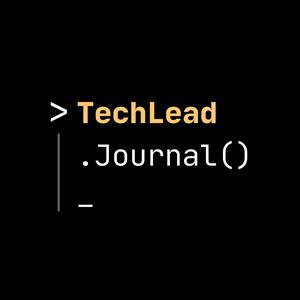
Hol dir die kostenlose radio.at App
- Sender und Podcasts favorisieren
- Streamen via Wifi oder Bluetooth
- Unterstützt Carplay & Android Auto
- viele weitere App Funktionen
Hol dir die kostenlose radio.at App
- Sender und Podcasts favorisieren
- Streamen via Wifi oder Bluetooth
- Unterstützt Carplay & Android Auto
- viele weitere App Funktionen


Tech Lead Journal
Code scannen,
App laden,
loshören.
App laden,
loshören.

